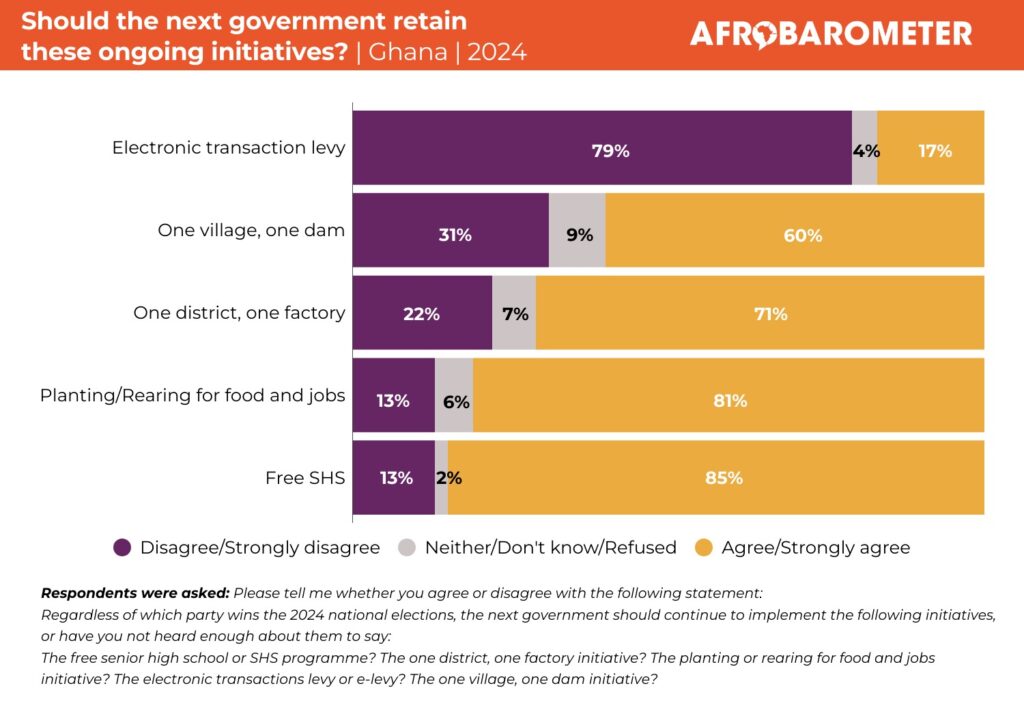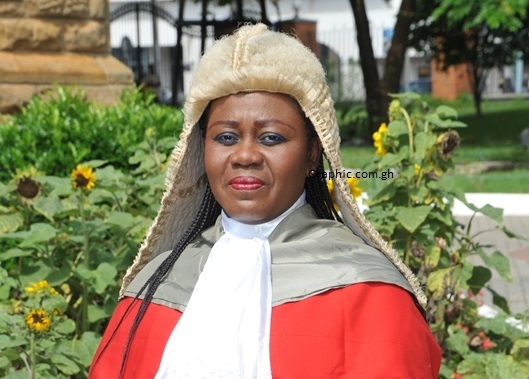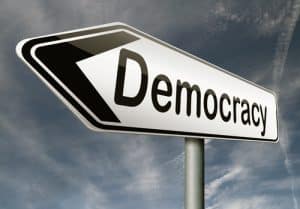President Nana Addo Dankwa Akufo-Addo’s “Ghana Beyond Aid” (GhaBA) agenda may have come to stay. It is continuously evoked domestically and in our foreign relations and multilateral/bilateral partnerships. Although commendable, and generally well received by Ghanaians and the international community, the President’s words have been short on detail. Not only does the stated vision of a Ghana beyond aid come with no definite timetable, it also comes without a coherent policy framework or strategic plan articulating what it means and what it might take for Ghana to realize this bold vision. This has led critics, including Professor Philip Alston, the United Nations Special Rapporteur on extreme poverty and human rights, to dismiss as sloganeering and political grandstanding, the GhaBA agenda. He warned that if government does not set its priorities well, the agenda will most likely not yield the desired change.
Fortunately, in the last few months the President launched a seven-year Coordinated Program of Economic and Social Development which is expected to inform development planning processes and propel the country to ‘beyond aid’ status. Then in May a ten-member committee was set up to develop a charter for the Ghana Beyond Aid agenda. In June a thirteen-member body was inaugurated. Though these steps are significant and advances the agenda beyond slogans, how do we ensure that the “Beyond Aid” agenda does not only make the jingles, but that as a country, we are able to take advantage of the transformative opportunity that it presents to address and break away from certain
patterns or perverse incentives of our body- politic and governance that continue to hamper our efforts to break from the shackles of aid dependency and sluggish national growth?
The President on GhaBA
Gleaning from the President’s speeches over the past several months – especially his 61st Ghana Independence Day speech, we can sense a gradual crystallization of his vision, although this still remains largely on the philosophical plane and short on detail at the more substantive policy (the political and economic transformation required) level needed to move the country beyond aid. On the level of ideas, the President envisions a development process, starting from the individual to a critical mass with the shared concern that aid is not a panacea for our development deficits, and that we liberate ourselves from the mentality of dependence and adopt a confident can-do spirit to build a prosperous nation and be able to manage its development agenda without relying on aid.
Indeed, it is worth noting that aid cannot address all our problems, and donors and outsiders cannot fix our development challenges. We, as a country, are largely responsible for our own development because it is our local politics, choices, culture, and rules that in the final analysis, shape our destiny as a country. If aid were truly the prescription to be developed, we would have arrived at it decades ago! On the level of policy, the prospects for moving Ghana beyond aid would be shaped by a range of issues, including, but not limited to, political leadership, good governance, trade and investment, migration, environmental issues, technology, security and a rethink of Ghana’s role in the international system. But what exactly does this entail? The details from government are lacking, and this only leaves us with a host of substance and process questions.
On the level of policy, the prospects for moving Ghana beyond aid would be shaped by a range of issues, including, but not limited to, political leadership, good governance, trade and investment, migration, environmental issues, technology, security and a rethink of Ghana’s role in the international system.
The key questions and way forward
What is the government’s exit strategy for aid?
Moving away from aid dependency is a great endeavor that cannot be reduced to just grand statements on political platforms. Impressive recovery success stories across the world, such as Singapore, South Korea, India, Malaysia, etc. illustrate detail of policy and political commitment and leadership for execution.
Related to strategy is the question of timing. Any serious endeavor as the GhaBA, must also be complemented with clearly defined timelines. Without a clear strategy document with definite timelines, we are afraid that government interventions in the name of GhaBA would be much more of a “spray gun” approach to development (trying to do too many things at a time), akin to policies of donor agencies that have not resulted in the development we want.
Who champions GhaBA beyond the President?
It appears the President is the only champion of the Beyond Aid agenda, although the message is occasionally echoed, too, by the Finance Ministry. To the extent that GhaBA is successful, there is need for a buy-in from within the President’s own party (the New Patriotic Party), government, opposition parties, and the local government administrations and structures, and if possible, be backed by a legislation to ensure its continuance beyond the current administration. In short, the GhaBA must be mainstreamed as a national project with multi-partisan support to succeed.
To the extent that GhaBA is successful, there is need for a buy-in from within the President’s own party (the New Patriotic Party), government, opposition parties, and the local government administrations and structures, and if possible, be backed by a
legislation to ensure its continuance beyond the current administration. ”
Is revenue mobilization the only way?
Domestic revenue mobilization as the way to achieve the GhaBA is certainly a welcome trajectory as it impacts on aggregate economic growth. While this focus is necessary, let us not lose sight of putting GhaBA into broader perspective. The Beyond Aid agenda is principally a political economy question of who gets what, when and how, and the issues that pertain to the pattern of production and distribution. We need to redefine how we do our politics and make our economic decisions. This is critical, particularly given that the prevailing political incentives in the country favor borrowing over raising taxes or making sure that we get better deals for our extractives and our contracts with foreign governments and partners.
Further, the willingness of citizens to duly pay their taxes (an important component of domestic revenue) is necessarily related to how they perceive government as a spender. Over the years, government has registered the unpalatable opinion that it is profligate, wasteful, reckless, and an irresponsible manager of the public purse, and consequently damping citizens’ discipline and cooperation with the payment of taxes. It is important we recognize that in our quest for sustainable growth and development, the presence of politically neutral/non-partisan functioning institutions and processes of accountable governance, clean government and judicious use of public funds, and the dramatic curbs on official profligacy cannot be compromised. Until we manage to have a smooth functioning of the country’s “operating system” – the political economy, and to control government profligacy, waste, and corruption, GhaBA would only remain in our collective memory as one of those great slogans that was but zilch.
Until we manage to have a smooth functioning of the country’s “operating system” – the political economy, and to control government profligacy, waste, and corruption, GhaBA would only remain in our collective memory as one of those great slogans that was but zilch.
What are the implications of GhaBA on social programs and for different demographics?
The contribution of aid in our social sectors such as education and health are an established fact. Most social programs in the country have been financed by aid and have certainly helped in ameliorating the woes of poor and marginalized citizens. In the absence of aid, how prepared is government on making sure that the disadvantaged and poor of our population whose lives depend on social support – made available through aid – continue to receive from government their livelihood support? Access to basic social services such as basic education and primary healthcare are a fundamental human right and basic to the development process, and these social programs must continue.
What does GhaBA mean for civil society and broader participatory development?
Cardinal to GhaBA’s success is the continuous growth and deepening of good governance, public sector accountability and transparency, and Civil Society Organizations (CSOs) have been instrumental in this process, serving as the interface between citizens and the government. Apart from the watchdog role in exposing corruption and raising public awareness, CSOs also participate in decision-making processes and propose policy alternatives by engaging with the government. However, much of CSO engagement by the government is donor (demand) driven. The question therefore is, will CSOs continue to have access to the government and public engagement if the latter no longer receives aid? Will government feel obliged to work with CSOs after donor funding ends? For a sustained economic growth and the consolidation of our democracy, CSOs will need a continuous relationship with the government beyond aid.
What does GhaBA mean for Ghana’s relationship with aid/donor countries and governments?
It is common knowledge that a country’s position in the global economy determines the level with which it can leverage such a position for the achievement of its national economic interest. However, the position of developing countries, including Ghana, in the global economy is turbulent, disturbed and unequal, and for GhaBA, it would mean the redefinition of our transactional relationship with developed countries (and former donors) that is mutually beneficial, where trade and export agreements do not distort our local economy vis-à-vis the international trade and investment.
The GhaBA agenda would, therefore, in practice mean engaging more effectively with these broader issues, bringing more clarity to them, and putting in place appropriate policies and institutions to deliver for development, while supporting the achievement of the Sustainable Development Goals.
Moving forward, making GhaBA a reality invites us all to continue to interrogate these questions and bring more clarity to them while pushing for a government blueprint/strategy document. This would allow for a more thought-through and coordinated government after government effort in implementations, as well a vibrant civil society to assess or track government’s commitment to development beyond aid.
Democracy Watch is the official Newsletter of the Ghana Center for Democratic Development. The publication tracks Ghanaian democratization and highlights areas of progress, stagnation and retrogression.
© Copyright CDD-Ghana, 2018
Material from this publication may be quoted with appropriate citation.
The Ghana Center for Democratic Development (CDD-Ghana) is an independent, non-governmental and non-profit research and advocacy institute dedicated to the promotion of democracy, good governance and economic openness in Ghana and throughout Africa. CDD-Ghana’s research outputs and other services are available to and used by governmental and non-governmental agencies, Africa regional bodies, development partners as well as researchers and the public.















